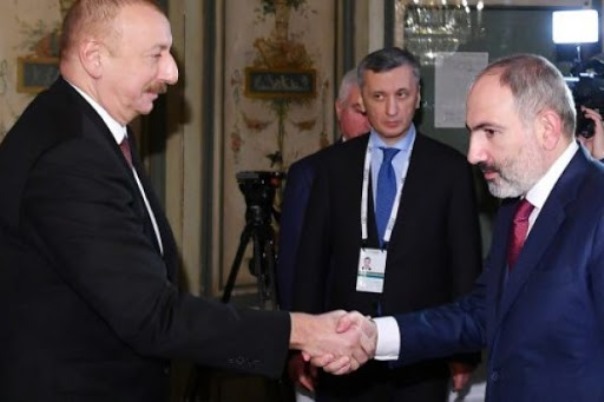Speaking in an interview with the website of the Strategic Council on Foreign Relations regarding the recent Karabakh agreement, Mohsen Pakaein said: The agreement reached in Russia between the Republic of Azerbaijan and Armenia, especially some of the provisions that have been implemented so far, are in fact the same views expressed by the Islamic Republic of Iran; that is to say, the same views that were mentioned in the Iranian plan and Mr. Araghchi, Deputy Foreign Minister of Iran, had consulted about it with different countries. In addition, the key points of the agreement had earlier been mentioned in the IRI Supreme Leader’s statements. According to the expert, ending the occupation of seven cities of the Republic of Azerbaijan, safeguarding the territorial integrity of that country, as well as no change in the accepted geographical borders, are the points that have already been implemented and have been supported by the Islamic Republic of Iran.
The former Iranian ambassador added: The recent 45-day war was led to the liberation of seven occupied cities of the Republic of Azerbaijan and brought happiness to the people of that country, but the failure of the liberation of Karabakh destabilized this happiness.
Pakaein added: The important issue that has been raised in this plan which may lead to war, insecurity and ceasefire violations again is the uncertain situation in the Karabakh region; it means that it is not clear which country will hold the sovereignty of this region.
Noting that the Republic of Azerbaijan naturally considers Karabakh as a part of its territorial integrity, the expert on Asia affairs said: Azerbaijan’s main demand is that Karabakh should be returned to that country as an autonomous republic. At the same time, the self-proclaimed government of Karabakh, with the support of Armenia, insists on separating the region from the Republic of Azerbaijan. Pakaein continued that until the situation in not specified in the region the conflict will continue and implementation of the remaining provisions of the plan will automatically become ambiguous.
In response to the question that what changes will take place if this plan is implemented, the former ambassador of Iran to the Republic of Azerbaijan explained: In the first place, if this plan is fully implemented, peace will be established in the region. This peace is positive for all countries in the region and promotes regional cooperation and convergence. Of course, in the first step, this peace is very important for the Republic of Azerbaijan and Armenia. Because these two countries have been at war for years, and both, especially Armenia, have greatly suffered from the consequences of the war.
Noting that peace between Azerbaijan and Armenia also has benefits for the Islamic Republic of Iran, he stressed: Firstly, in terms of security, the country’s borders are secured, and secondly in economic terms, it gives Iran the opportunity to cooperate and participate in the reconstruction of the seven devastated cities in Azerbaijan, which are located 500 meters or one kilometer from Iran.
If the Islamic Republic of Iran acts prudently and with sound planning, it will have a good opportunity, the expert continued.
While rejecting some speculations that following this agreement, Iran’s transit advantage will decrease, Pakaein said: Iran’s main transit advantage is the north-south corridor and vice versa, which connects Azerbaijan and Armenia to the Sea of Oman and the Persian Gulf. In this regard, Iran earns transit income.
He continued: At the same time, due to the war, Azerbaijan had been forced to cross the territory of Iran to go to Nakhchivan, and it seems that from now on Azerbaijan will use this alternative route, and this is again in the interest of the Islamic Republic of Iran; because Baku does not want to use only one route and make itself completely dependent on Armenia in terms of transit.
In conclusion, the former Iranian ambassador to Baku stressed that at the present juncture the Islamic Republic should seek lasting peace over the Karabakh issue and the differences between the Republic of Azerbaijan and Armenia, and “no war no peace” is not in the interest of any country in the region.










0 Comments